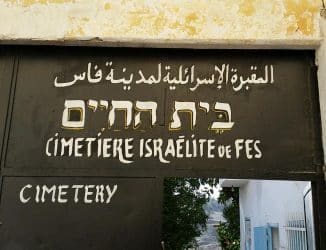Jewish heritage tour of Morocco includes visits to historical synagogues and Jewish cemeteries, as well as other sites of cultural and religious significance to the Jewish community in Morocco. Some popular destinations on such a tour might include the cities of Casablanca, Fez, and Marrakech, which have large and historic Jewish populations. The tour may also include visits to the Mellah, or Jewish quarter, in these cities, and possibly even the chance to meet with members of the local Jewish community.
During a Jewish heritage tour of Morocco, you would also have the opportunity to explore the rich cultural and historical influences that have shaped the country’s Jewish community throughout history. This could include learning about the different waves of Jewish immigration to Morocco, from the Sephardic Jews who were expelled from Spain in the 15th century to the more recent Jewish immigrants who arrived in the 20th century. Additionally, you may have the chance to see traditional Moroccan-Jewish crafts, such as the intricate tile work and metalwork that can be found in synagogues and other Jewish cultural sites.
Other possible stops on a Jewish heritage tour of Morocco might include the famous Bahia Palace in Marrakech, which was built by a Jewish architect, and the Jewish Museum of Casablanca, which showcases the history and culture of the Jewish community in Morocco. Some tours may also include visits to the Jewish Community Center in Casablanca, which serves as a hub for Jewish life in the city.
Lastly, some tour may also include a visit to Chefchaouen, also known as the “blue city” of Morocco, which is known for its beautiful blue-painted buildings and its history as a haven for Jewish refugees during World War II.
Morocco is home to many Jewish cemeteries, which are important historical and cultural sites for the country’s Jewish community. Some of the most notable Jewish cemeteries in Morocco include:
- The Jewish Cemetery of Casablanca: This cemetery is one of the largest in Morocco, and is known for its well-maintained graves and its beautiful architecture. It is also the final resting place for many notable members of the Jewish community in Casablanca.
- The Jewish Cemetery of Fez: This cemetery is located in the heart of the city, and is one of the oldest Jewish cemeteries in Morocco. It is also the final resting place for many notable rabbis and scholars of Moroccan-Jewish history.
- The Jewish Cemetery of Marrakech: This cemetery is located on the outskirts of the city, and is known for its large and elaborate tombs, many of which are adorned with intricate tile work and calligraphy.
- The Jewish Cemetery of Tetouan: This cemetery is located in the city of Tetouan, in the northern region of Morocco, and is known for its beautiful and well-preserved graves, many of which date back to the early 20th century.
Visiting Jewish cemeteries can be a poignant and meaningful way to learn about the history and culture of Morocco’s Jewish community, as well as to pay respects to the people who have helped to shape it.
Sefrou is a city located in the Fès-Meknès region of Morocco. It is believed to have been settled by Jewish people since the Roman period, and it has a rich Jewish heritage.
The Jewish cemetery of Sefrou is located on the outskirts of the city and is believed to date back to at least the 18th century. It is known for its well-preserved tombstones and its beautiful architecture, many of the tombstones are adorned with intricate carvings, Hebrew inscriptions, and traditional Jewish symbols.
The Jewish cemetery of Sefrou is considered as one of the most important Jewish heritage sites in the region, and it is a significant place to learn about the history and culture of the Jewish community in Sefrou. Many of the tombstones are inscribed with the names of notable members of the community and dates back centuries, making it a valuable historical document for those who are interested in the Jewish history of Sefrou.
Visiting Jewish cemeteries can be a poignant and meaningful way to learn about the history and culture of Morocco’s Jewish community, as well as to pay respects to the people who have helped to shape it.
